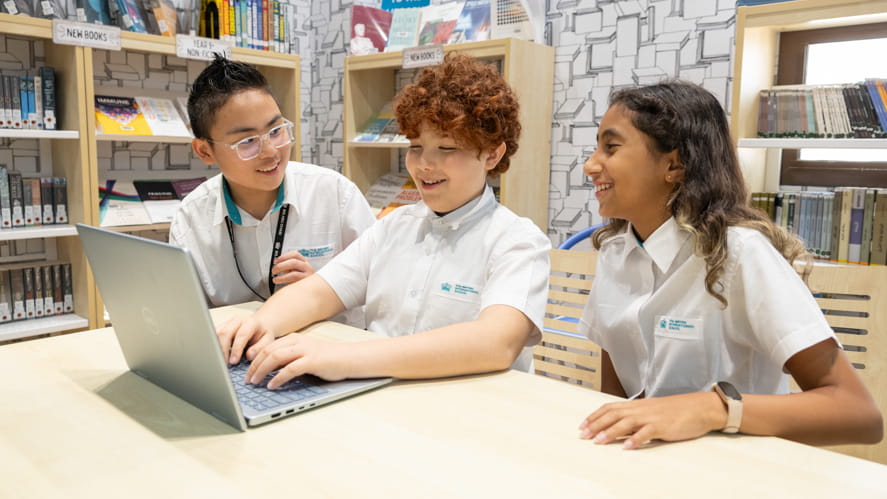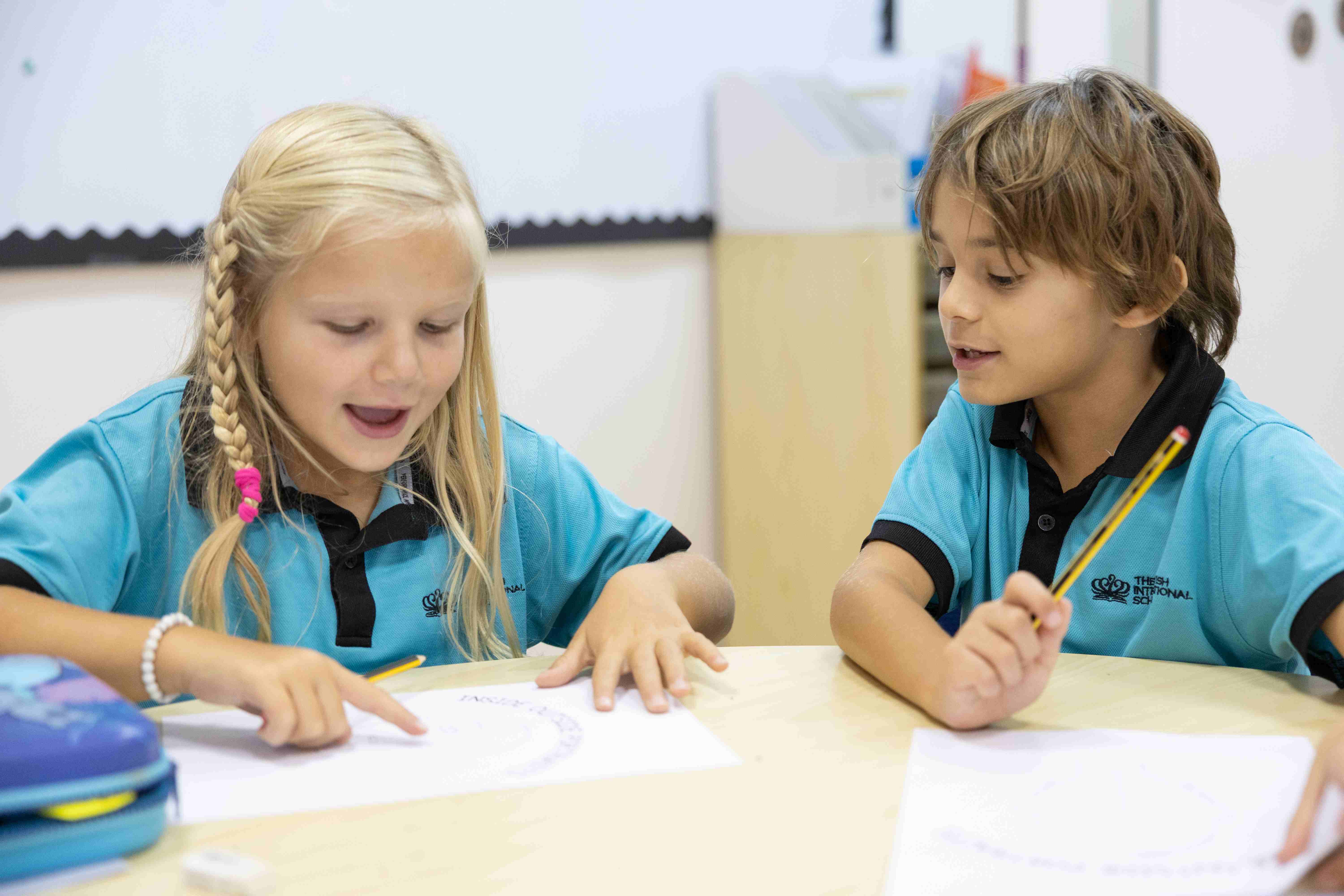Message from our Deputy Head of Primary, Hollie McKie
At The British International School Abu Dhabi, we continually reflect on and adapt our teaching and learning strategies to ensure classroom practice is guided by the latest educational research and what we know works best for children. Research from the Education Endowment Foundation (EEF) shows that oral language approaches can accelerate student progress by over six months, particularly in the early years and primary phase. With this in mind, we're weaving oracy into every part of our curriculum.
Oracy, the ability to express oneself fluently and confidently through spoken language, is a vital skill that supports learning across all subjects. By embedding oracy into daily classroom practice, we give children the tools to express their thinking, reason clearly, and make meaningful connections.
Creating opportunities to speak and be heard
Our teachers plan regular, structured opportunities for children to talk, explain, and reason throughout lessons, from paired discussions to whole-class debates. Every child is encouraged to contribute and develop their voice. Teachers model high-quality spoken language daily, demonstrating how to give clear explanations, justify opinions, and respond respectfully to others. Sentence stems are used during lessons to help children frame their ideas and express themselves confidently. Students are regularly asked to repeat or rephrase responses using full sentences, ensuring precision and clarity in speech. Across classrooms, it’s important to ensure high expectations when it comes to speaking and oracy, helping children to internalise academic language and develop confidence as articulate communicators.
Oracy from EYFS to Upper Key Stage 2
Oracy develops progressively from EYFS upwards. In the Early Years, talk is woven through play and exploration; children learn to name, describe, and question the world around them. Classrooms are rich in spoken interaction, with teachers modelling vocabulary and using prompts to encourage discussion. Oral rehearsal of stories helps children build strong narrative skills and confidence in expressing ideas.
As students move through Key Stage 1 and 2, oracy becomes increasingly structured. Children are encouraged to listen actively, take turns, make eye contact, and justify their answers with reasoning. Through activities such as group problem-solving, role play, and debates, they learn how to communicate ideas clearly, challenge respectfully, and build upon others’ contributions. This careful progression ensures that by the time students reach Upper Key Stage 2, they can confidently explain their thinking, present to an audience, and use talk as a powerful tool for learning and reflection.

The role of parents in oracy development
Oracy doesn’t stop when they leave school. Parents play a vital role in helping children develop speaking and listening skills. Everyday moments like mealtimes, car journeys, or bedtime are perfect opportunities for conversation. Ask open-ended questions such as, “What was the best part of your day?” or “What was your favourite part of that story?” to encourage longer, thoughtful responses. If your child struggles to express themselves, use prompts like “I think that because…” or “My favourite part was…” to help them organise their ideas. Simple activities such as cooking, shopping, or reading together can also support oracy. Ask your child to explain what they’re doing, make comparisons, give instructions, or summarise a story in their own words.
Building confident communicators for life
Playful talking games, like story-building, chats about favourite characters, or descriptive games such as ‘I Spy’ also boost confidence. Confident speakers at home carry that confidence into school, articulating their thinking and engaging deeply with learning across the curriculum.
Talking is how children learn to think. By working together, through evidence-informed teaching at school and meaningful conversations at home, we can continue to help every child develop the language, confidence, and curiosity to express their ideas.








.jpg?h=1667&iar=0&w=2500&rev=16ac729ed02b4f74b3691e3780ff0da6&hash=6E65C9B719F9C2F92A806BDD54FE44B0)
.jpg?h=499&iar=0&w=887&rev=2117df3a6cb94983b0795be1a159c27b&hash=8878DCEFD5BBE6AE80A5F34BD0CA64AD)
.png?rev=1619813b30a347d9bc71977e2cfe09d2&hash=66B98CDC659BBF07EB36660B4381E1E7)